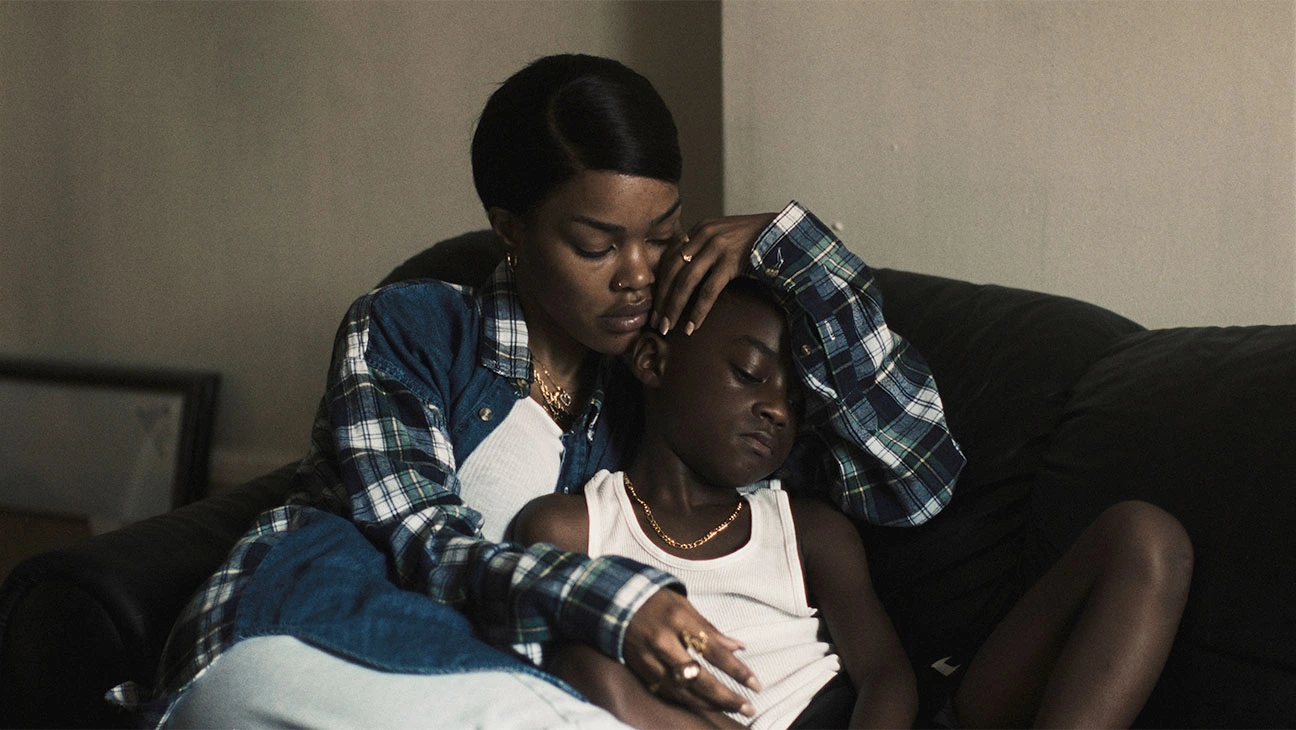
A Thousand and One finds us alongside Inez (Teyana Taylor), a young woman moving from shelter to shelter in mid-1990s New York City. As a result of her situation, she has lost her 6-year-old son Terry (portrayed as a child by Aaron Kingsley Adetola and later by Josiah Cross) to foster care. Inez soon launches a plan to kidnap Terry and live life under the radar. Terry develops into a smart teenager, but their secret may soon come back around on them.
A Thousand and One juxtaposes images of a rapidly changing 1990s New York City as the Rudy Giuliani fueled gentrification process begins against the lives of its characters as they struggle to make ends meet everyday; the city looks to “improve” for some while others seek to find basic living conditions. The contrast of 90s urban revitalization with the characters’ environment underscores the film’s theme of just how much of a struggle life can be for the less fortunate. As Inez and Terry navigate poverty and the city’s child welfare system with nothing but each other, A Thousand and One becomes a study on both the strength and boundaries of love. Terry experiences love in all its aspects through his relationship with his mother over the years, the frustration at their lot in life, the annoyance at her insistence on making a better way for him, and the gratitude for making a way for him through it all.
The film is a coming of age tale, not just for Terry, but for their entire family as well. The time jumps show not just Terry’s development from a boy into a young man, but Inez and her boyfriend Lucky (William Catlett). We see Inez mature as a young mother alongside Terry and Lucky transform from a brash, street dude into a working man who seeks to provide and protect for his loved ones. Where A Thousand and One differs from the typical coming of age story is that the characters don’t necessarily develop into “better” people, just different, more experienced. The result is a story that feels more true to life and reflective of not just its gritty 1990s inner city NYC setting, but of life for the average person in general. We learn through out mistakes, our triumphs, our regrets, our misfortune, and come out on the other side changed, but not some newly sainted version of ourselves.
A Thousand and One spends the vast majority of its runtime as a slice of life tale of love among the poor in big city America until its third act throws a curveball at the audience, shifting perspective on the story they had just spent an hour and a half watching unfold. The questions that arise as a result are both shocking and tantalizing to considers what does this mean for Terry’s identity? Can broken people help repair other broken people? What is the line between self absorption and altruism? The film’s twist serves both its entertainment value and its substantive themes. Teyana Taylor and Josiah Cross are excellent as a mother-son duo with complications and a gamut of emotions surrounding their relationship. Taylor is impressive and awards worthy as a lead actress and while it may be tempting to classify her portrayal of Inez as playing herself, the emotion and story behind the young mother requires enough deviation from the Taylor that made her fame as a dancer and singer to be lauded for what she is able to portray onscreen. She is empathetic and relatable even at points where the character shouldn’t be. Catlett supports Taylor and Cross as Lucky, the conscious and rock holding the two of them together. This is a superb feature debut for writer/director A.V. Rockwell that is worth a watch.
Image: Focus Features

